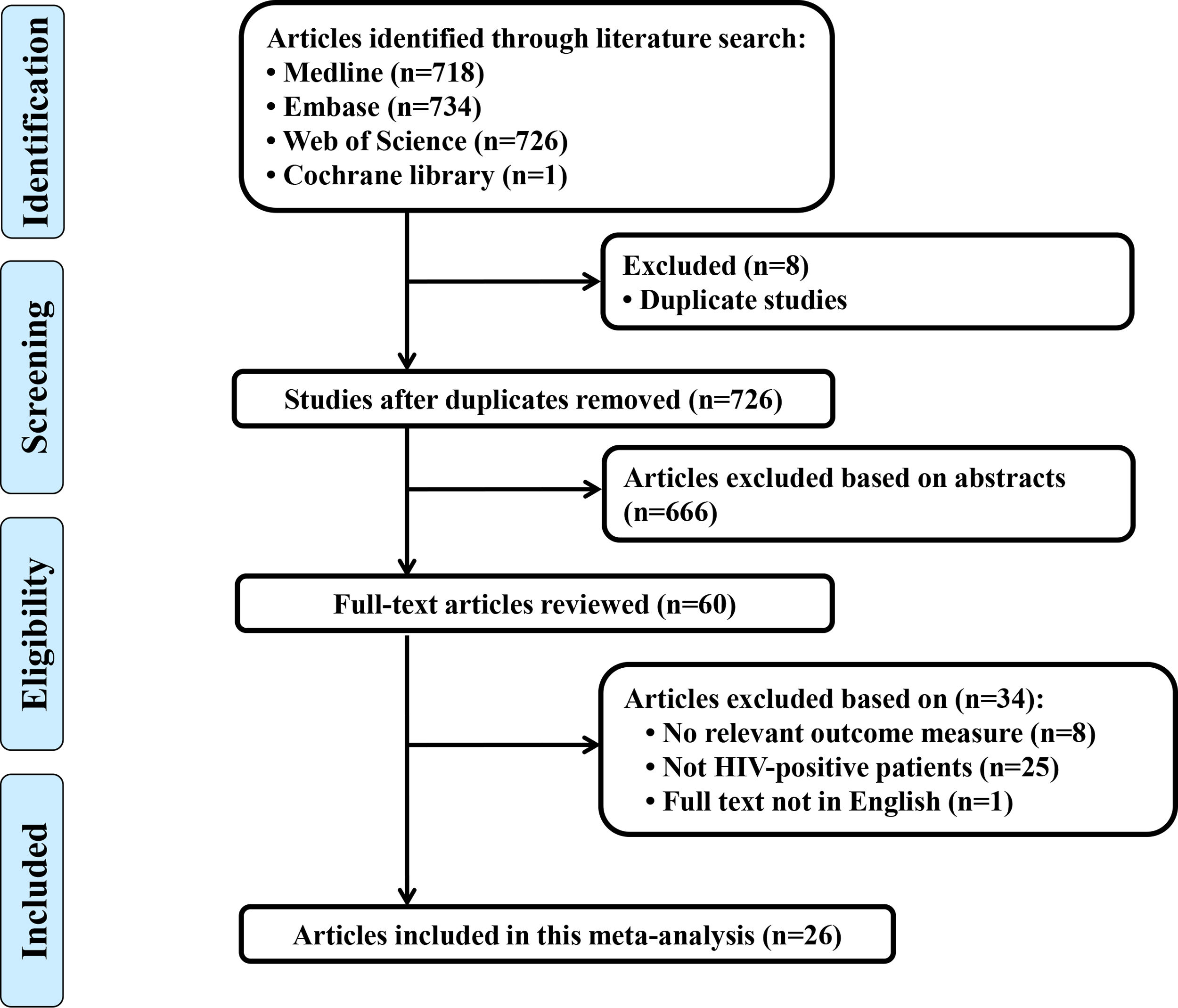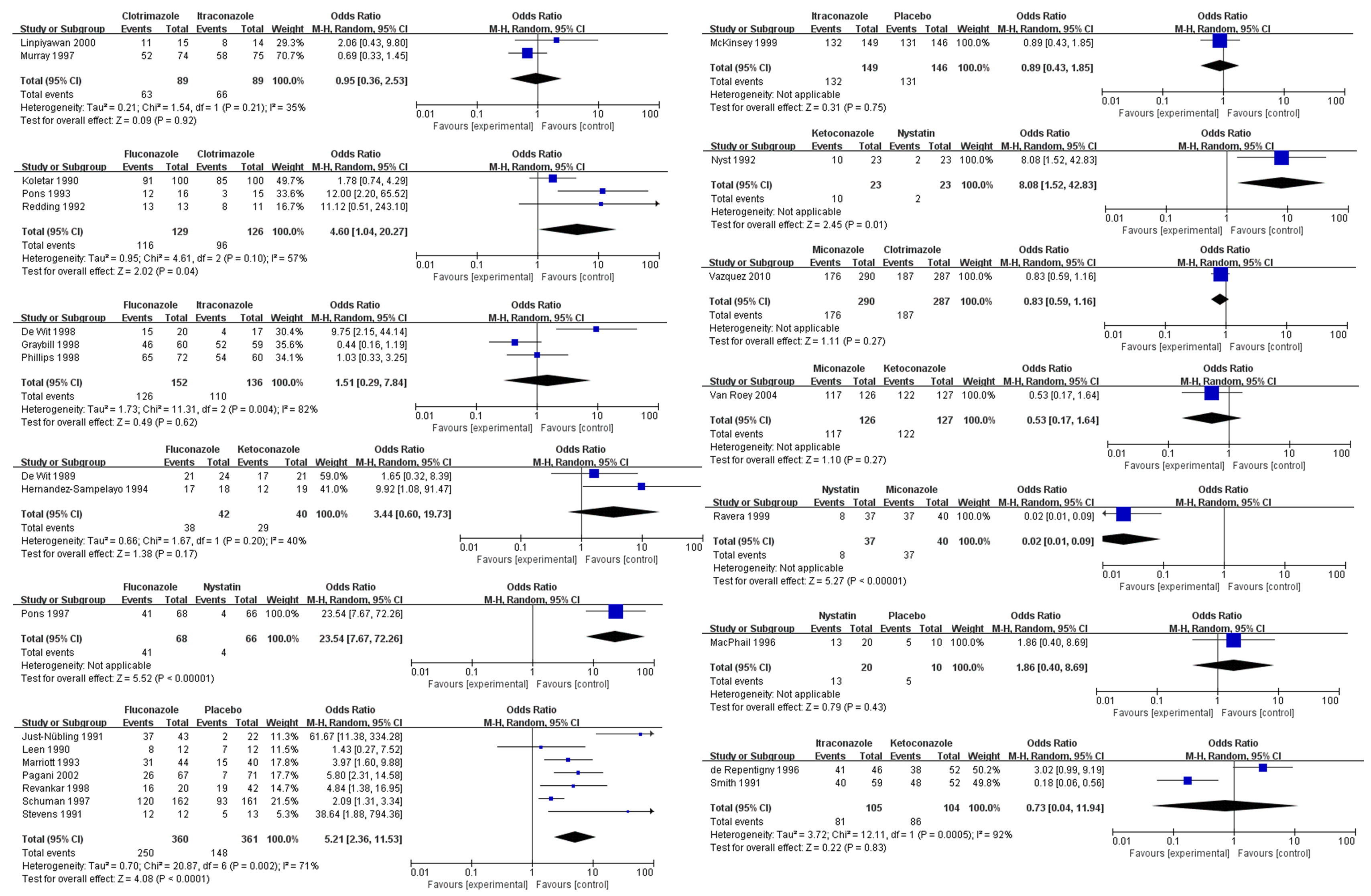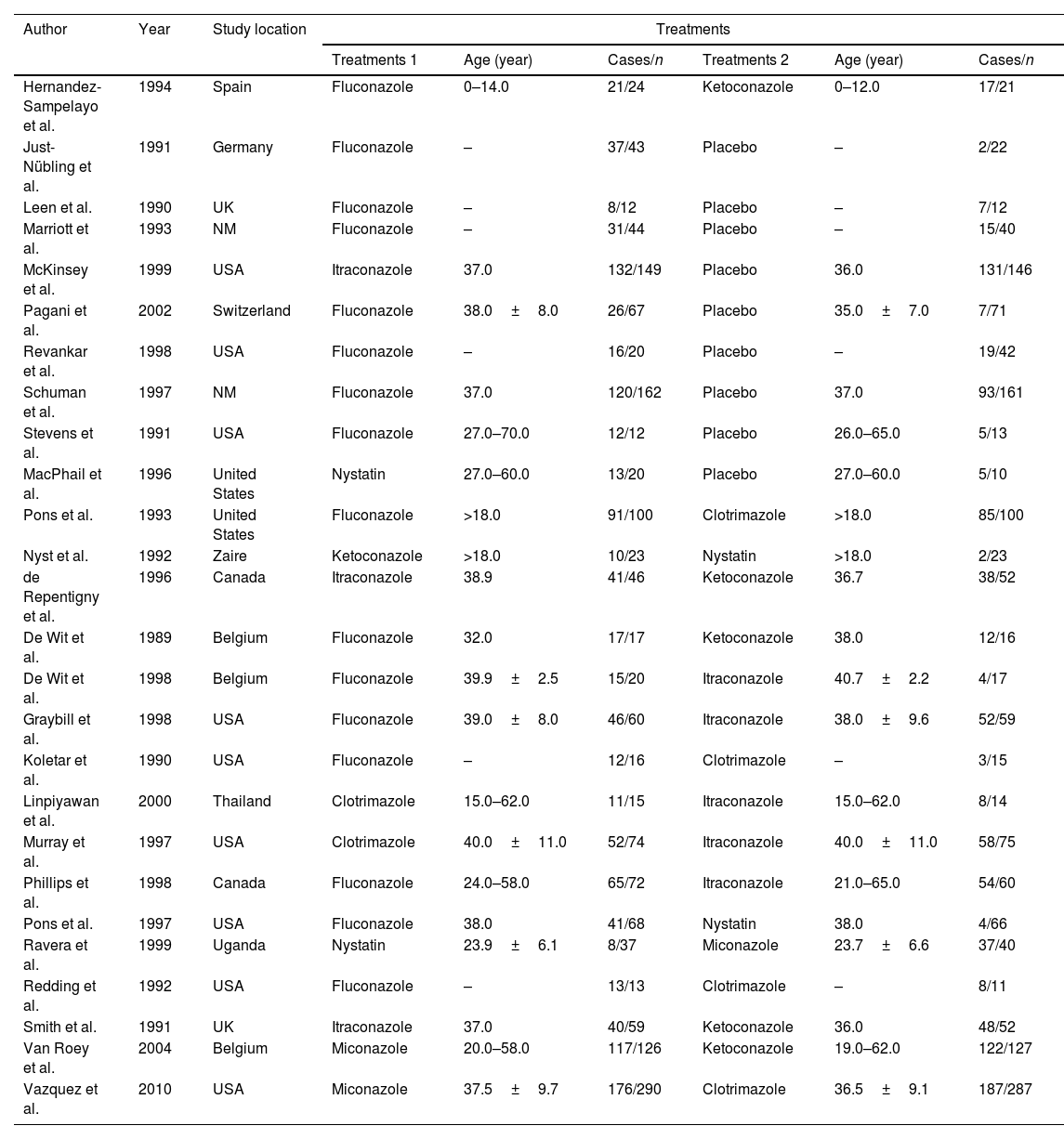Oral candidiasis infection is particularly prevalent among individuals in HIV-positive patients. Antifungal drugs have shown promising therapeutic effects in treating oral candidiasis in HIV-positive patients. However, the selection of specific antifungal drugs for the treatment of oral candidiasis in HIV-positive patients lacks evidence-based guidelines. This study aims to address this gap by conducting a comprehensive review of relevant randomized controlled trials (RCTs) and performing a network meta-analysis to assess the efficacy of different antifungal drugs in treating oral candidiasis in HIV-positive patients. A systematic search was conducted in databases including EMBASE, Web of Science, Medline, and Cochrane databases to identify relevant articles. Additionally, key pertinent sources in the literatures were also reviewed. All studies published prior to August 2023 were eligible for inclusion. Two researchers independently conducted the screening of literature, extraction of data, and evaluation of quality. Pairwise and network meta-analysis were then performed to assess the primary outcomes of the randomized controlled trials (RCTs) included. The protocol was registered on the PROSPERO database (CRD42024513912). Twenty-six RCTs were included in this meta-analysis, involving a total of 3145 patients and evaluating seven interventions (placebo, fluconazole, itraconazole, nystatin, clotrimazole, ketoconazole, miconazole). Pairwise meta-analysis and network meta-analysis showed fluconazole was significantly efficacy in increasing mycological cure rates when compared with placebo, clotrimazole, and nystatin. Ketoconazole and miconazole were significantly efficacy in increasing mycological cure rates when compared with nystatin. Network meta-analysis also suggested the efficacy of the seven interventions in increasing mycological cure rates was ranked as follows: placebo (35.3%), fluconazole (95.2%), itraconazole (61.6%), nystatin (17.0%), clotrimazole (52.7%), ketoconazole (69.2%), miconazole (69.1%). The available evidence indicates that fluconazole had the greatest possibility to increase mycological cure rates in HIV-positive patients, while, nystatin was the least effective antifungal drug in increasing mycological cure rates in HIV-positive patients.
El estudio tiene como objetivo abordar esta brecha mediante una revisión exhaustiva de los ensayos controlados aleatorizados (ECA) relacionados y un metaanálisis en línea para evaluar la eficacia de diferentes antifúngicos en el tratamiento de la infección oral por Candida en pacientes VIH positivos. Se han realizado búsquedas sistemáticas en bases de datos, entre ellas EMBASE, Web of Science, Medline y Cochrane, para identificar artículos relevantes. Se seleccionaron todos los estudios publicados antes de agosto de 2023. Dos investigadores realizaron de forma independiente la selección documental, la extracción de datos y la evaluación de la calidad. A continuación se realizaron emparejamientos y metaanálisis en red para evaluar los principales resultados del ECA. El protocolo ha sido registrado en la base de datos PROSPERO (CRD42024513912). Este metaanálisis incluyó 26 ECA en los que participaron un total de 3.145 pacientes, y evaluó siete intervenciones (placebo, fluconazol, itraconazol, nistatina, clotrimazol, ketoconazol, miconazol). El metaanálisis emparejado y el metaanálisis en línea mostraron una eficacia significativa del fluconazol en la mejora de la tasa de curación fúngica en comparación con placebo, clotrimazol y nistatina. En comparación con la nistatina, el ketoconazol y el miconazol tienen un efecto significativo en la mejora de la tasa de curación fúngica. El metaanálisis en línea también muestra que las siete intervenciones clasifican la eficacia para mejorar la tasa de curación micológica de la siguiente manera: placebo (35,3%), fluconazol (95,2%), itraconazol (61,6%), nistatina (17,0%), clotrimazol (52,7%), ketoconazol (69,2%), miconazol (69,1%). La evidencia disponible sugiere que el fluconazol es el más adecuado para aumentar la tasa de curación fúngica en pacientes VIH positivos, y la nistatina es el medicamento antifúngico menos eficaz para aumentar la tasa de tratamiento fúngico en casos VIH positivos.















